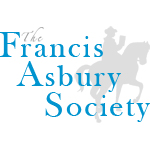Scripture reading: Matthew 10:34–39
The Love of Power and the Power of Love
Do not be overcome by evil, but overcome evil with good. (Romans 12:21)
On December 7, 1941, a Japanese pilot named Mitsuo Fuchida led the aerial assault on Pearl Harbor. As the most experienced pilot in the Japanese Navy, Fuchida was chosen to lead the 360 planes into battle and became a Japanese hero for his role in this brazen attack. But after his nation’s defeat in World War II Fuchida became depressed and disillusioned. He returned to his village near Osaka and began farming.
While visiting Tokyo, Fuchida saw an American distributing literature. He took the pamphlet and read the incredible story of the American pilot Jake DeShazer. One of the Doolittle Raiders, DeShazer had helped bomb Tokyo in a daring counterattack only months after Pearl Harbor. He had parachuted into Japanese-held territory when his plane ran out of fuel. Held as a prisoner of war for forty months, DeShazer received brutal treatment at the hands of his captors. Hatred toward the Japanese consumed him. But in prison, DeShazer found a Bible. In reading the Gospel, he met Jesus Christ and his life was dramatically transformed. His hatred for the Japanese was turned into love. The tract went on to explain that DeShazer had now returned to Japan as a missionary. His desire was to make Christ known to his former enemies so they too could experience the transforming power of love. This tract made a huge impression on Fuchida. He purchased a Bible and began to read for himself the story of Jesus.
In the ensuing weeks, I read this book eagerly. I came to the climactic drama—the crucifixion. I read in Luke 23:34 the prayer of Jesus Christ at his death; “Father, forgive them, for they know not what they do.” I was impressed that I was certainly one of those for whom he had prayed. . . . Right at that moment, I seemed to meet Jesus for the first time. I understood the meaning of his death as a substitute for my wickedness, and so in prayer, I requested him to forgive my sins and change me from a bitter, disillusioned ex-pilot into a well-balanced Christian with purpose in living. That date, April 14, 1950, became the second “day to remember” of my life. On that day, I became a new person.
Mitsuo Fuchida went on to become a traveling evangelist, introducing others to the One who had changed his life so dramatically.
As an evangelist, I have traveled across Japan and the Orient introducing others to the One who changed my life. . . . He is the only hope for this troubled world. . . . Peace and freedom—both national and personal— come only through an encounter with Jesus Christ. I would give anything to retract my actions of twenty-nine years ago at Pearl Harbor, but it is impossible. Instead, I now work at striking the death-blow to the basic hatred which infests the human heart and causes such tragedies. And that hatred cannot be uprooted without assistance from Jesus Christ. He is the only One who was powerful enough to change my life and inspire it with his thoughts. He was the only answer to Jake DeShazer’s tormented life. He is the only answer for young people today.
Amen!
. . . ‘and forgive us our sins as we forgive those who sin against us’ . . . The condition of forgiving then is to be forgiven; the condition of being forgiven is to forgive. The two conditions are co-existent. —Charles Williams
point to ponder • Even pagans and atheists love their friends. It is when we are asked to love our enemies that we discover the depths of Christ’s work in our hearts.
prayer focus • Today, pray for your enemies.
